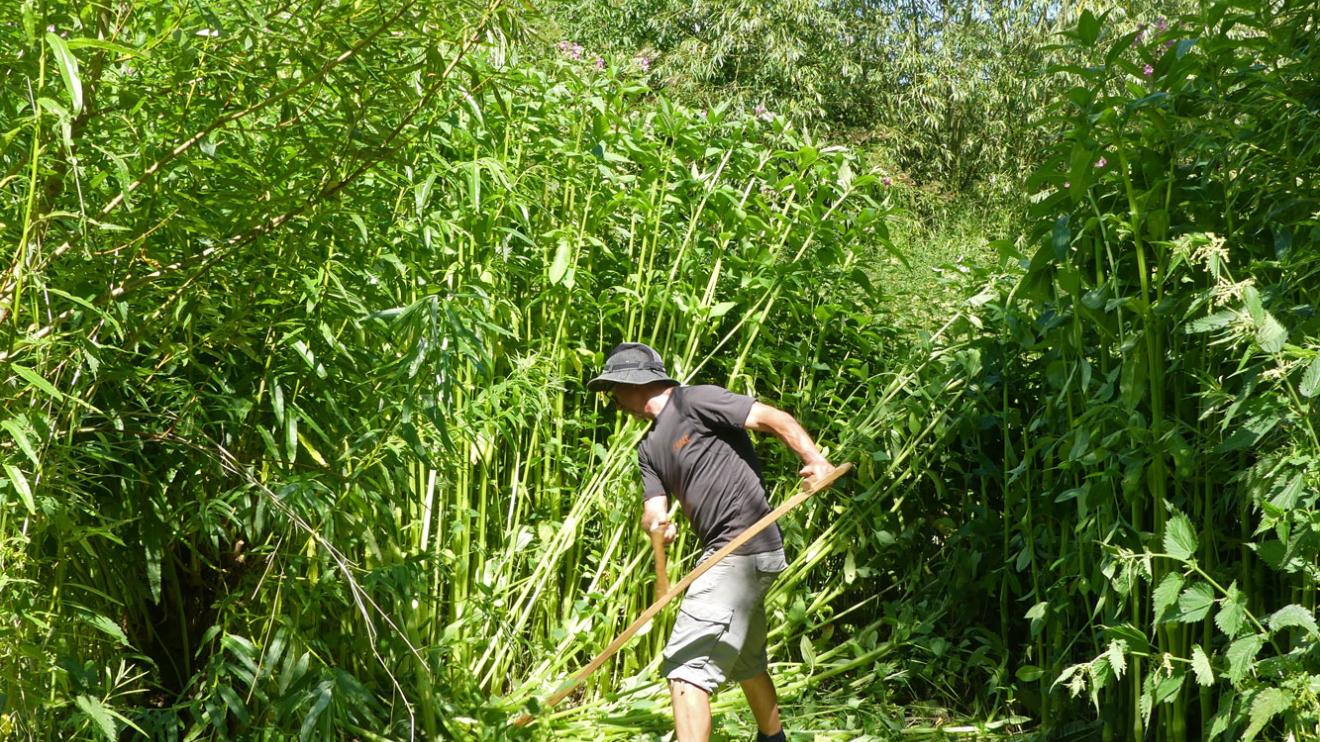
I’m Phil, from Frisby-on-the-Wreake near Melton Mowbray in Leicestershire and I’m a volunteer who helps to remove invasive Himalayan Balsam from the nearby River Wreake.
This tough non-native species has threatened to take over waterways in England, Wales and Northern Ireland, including along the River Wreake in Leicestershire. The County Council was awarded almost £18,000 from DEFRA to carry out a Himalayan Balsam removal project on behalf of the Leicestershire & Rutland Invasive and Non-native species Initiative (LINNSI) local action group.
This two-year pilot project is called ‘Invasive to Natives’ and uses volunteers to help cut back balsam along a 10km stretch of the River Wreake.
A few years ago, I struggled to manage the dense, overgrown brush, brambles, thistles and nettles in my garden with the usual modern tools. I thought my neighbour was joking when he handed me an ancient, rusty scythe and encouraged me to tackle the weeds – but it was a revelation!
With my own patch soon tidied, I was hooked on the scythe and keen to learn more. I attended a free course delivered by Richard Brown from Wild Scythes, where I trialled a lighter, more versatile Austrian scythe. I initially volunteered with the Wildlife Trust and honed my skills on remote, nature sensitive areas of Charnwood Forest, before joining the LINNSI local action group and helping to tackle Himalayan Balsam.
The plant can be easily identified by its scented pink and purple flowers and must be disposed of correctly to prevent further spread, as it threatens to smother and destroy our important native species. More information is available on the RHS website.
With funding from the project, the LINNSI group have been able to purchase their own scythes and facilitate specialist training to help upskill volunteers and partners in longer term eradication efforts.
Not only is volunteering with the LINNSI balsam taskforce sociable and a great opportunity to spend more time outside in nature, I’m also helping to protect our environment for future generations.
If you’d like more information about the initiative and associated volunteering activities, please email: EnvironmentTeam@leics.gov.uk